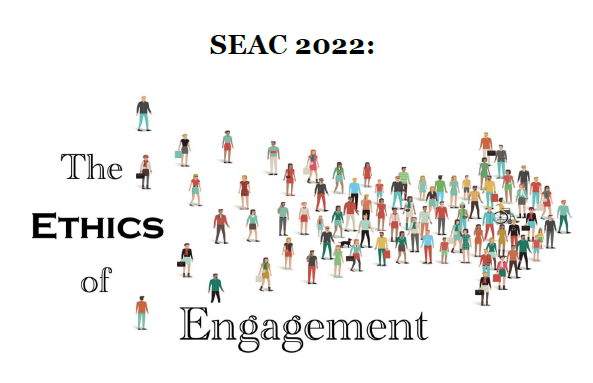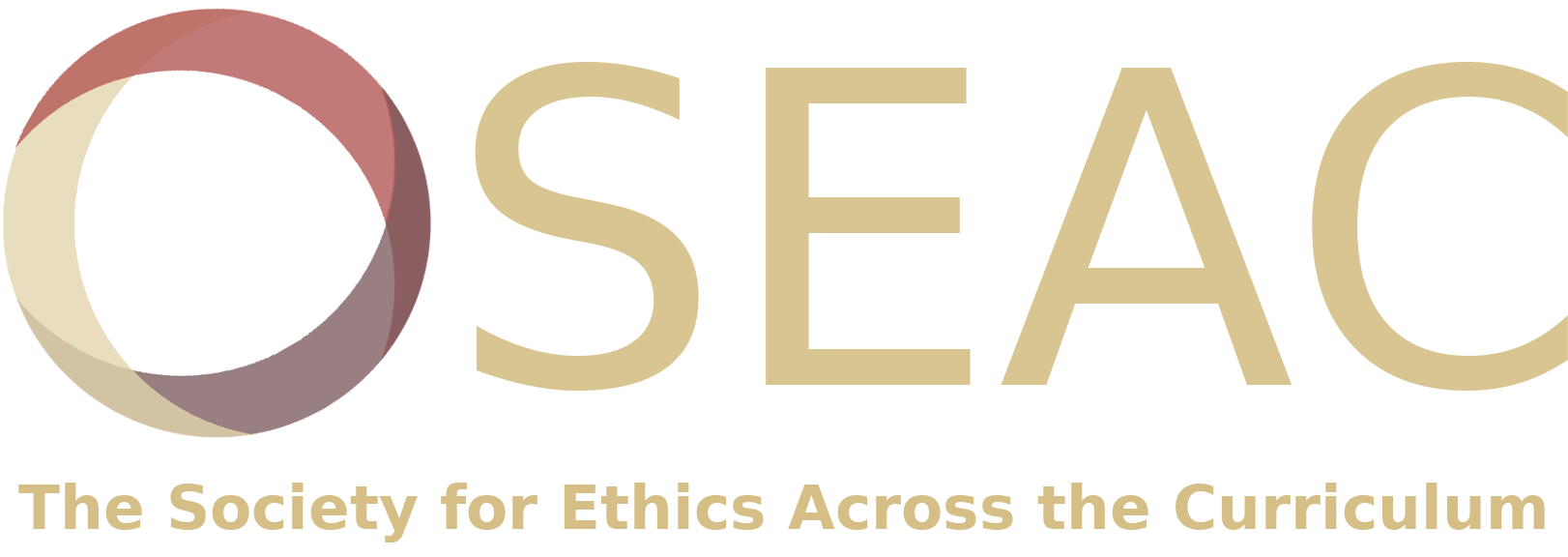
Concurrent Session 6A
Location
A: Room 111 (Bryant Hall, first floor)
Start Date
8-10-2022 8:30 AM
End Date
8-10-2022 10:15 AM
Description
- Ethical Identity in Engineering and STEM professions / Grisselle Centeno, Florida Southern University; Elaine E. Englehardt, Utah Valley University; Michael Pritchard, Western Michigan University (Prof. emer.)
Faculty and researchers from five universities are part of a National Science Foundation project that investigates how academia and industry are both formative elements of a STEM professional’s identity. Our project aims to improve ethical sensitivity and reasoning skills by integrating student experiences in industry internships with their academic work. This project addresses the following pair of research questions: (1) To what extent do students' pre-existing attitudes, values, and goals related to ethics and perceptions of the ethical responsibility of engineers change with involvement in professional engineering ethics training? (2) How might instruction in professional engineering ethics, coupled with a co-curricular internship experience, enhance development of the ethical component of a student's professional STEM identity? Contemporary issues such as the Surfside condominium collapse, and Volkswagen emissions scandal highlight the fact that mere technical ability is insufficient in order for engineers to fully live out their mandate to serve society in the practice of their craft. Ethics is an equally important component of the engineer and STEM professional identity. Some researchers have found that loyalty to a company is more important to the new STEM professional than professional and personal ethics. Our project is focused on strengthening an ethical identity in the young STEM professional. The faculty members represent Florida Polytechnical University, University of South Florida, Southern Florida University, Utah Valley University and Western Michigan University. - Forming Ethical Engineers: From High School to the University Graduation / Glen Miller, Texas A&M University
This paper describes the outcome of a number of enhancements added to PHIL 282 Ethics in a Digital Age that were funded by an internal Texas A&M University Presidential Transformational Teaching Grant. The interdisciplinary course explores some of the ethical and social implications of digital technologies, including questions of privacy and surveillance, artificial intelligence, digital citizenship, and geopolitical relations. The fundamental aim of the grant proposal was to develop the infrastructure to give my students the opportunity to contribute (even if on a small scale) to the research mission of the university, to produce works that which, in their dissemination, enrich public discourse and are widely available to as many people as appropriate, including (but not at all limited to) students who take the course in the future. I describe the improvements made to the assignments and course schedule; the development of an online module that is a stepwise guide to doing efficient research, writing papers, and developing presentations; my collaboration with the university library to create an open access faculty-curated collection of student work in text, audio, and video forms; and some practical lessons learned over the past two years. - Implications of a Cross-Cultural Study of First-Year Engineering Students’ Ethical Perceptions for Teaching Engineering Ethics / Qin Zhu, Virginia Tech
This paper discusses the implications of some preliminary findings from a study that compares first-year engineering students’ ethical perceptions across three cultures (United States, Netherlands, and China) for engineering ethics education. In this study, we surveyed how first-year engineering students perceived the public welfare beliefs, examples of (un-)ethical behaviors in engineering, and personal ethical values. We adopted part of the well-known instrument on moral disengagement developed by Erin Cech to assess how students perceived public welfare beliefs. We asked students to provide an example of unethical behavior in engineering and possible ethical problems they anticipate in their future careers. We asked them to list three most important values for defining a good engineer. This paper will first provide a brief introduction to the motivations of this project (e.g., empirically informed research needs to be culturally responsive, engineering ethics pedagogies need to accommodate diverse cultural backgrounds). It will then synthesize some preliminary empirical findings from our cross-cultural study. It will then discuss how these empirical findings in such a cross-cultural context will help us develop a more empirically informed and culturally responsive approach to engineering ethics education. In doing so, this paper will provide critical analyses of some dominant ideas, assumptions, and practices in current dominant approaches to engineering ethics education in the United States. This paper is of particular interest to scholars and educators who are interested in translating empirical education research to instructional innovations in and beyond the engineering classroom.
Session Chair: Glenn Walker, University of Mississippi
Relational Format
conference proceeding
Recommended Citation
Centeno, Grisselle; Englehardt, Elaine E.; Pritchard, Michael; Miller, Glen; Zhu, Qin; and Walker, Glenn, "Concurrent Session 6A" (2022). Society for Ethics Across the Curriculum Conference. 38.
https://egrove.olemiss.edu/seac/2022/schedule/38
COinS
Oct 8th, 8:30 AM
Oct 8th, 10:15 AM
Concurrent Session 6A
A: Room 111 (Bryant Hall, first floor)
- Ethical Identity in Engineering and STEM professions / Grisselle Centeno, Florida Southern University; Elaine E. Englehardt, Utah Valley University; Michael Pritchard, Western Michigan University (Prof. emer.)
Faculty and researchers from five universities are part of a National Science Foundation project that investigates how academia and industry are both formative elements of a STEM professional’s identity. Our project aims to improve ethical sensitivity and reasoning skills by integrating student experiences in industry internships with their academic work. This project addresses the following pair of research questions: (1) To what extent do students' pre-existing attitudes, values, and goals related to ethics and perceptions of the ethical responsibility of engineers change with involvement in professional engineering ethics training? (2) How might instruction in professional engineering ethics, coupled with a co-curricular internship experience, enhance development of the ethical component of a student's professional STEM identity? Contemporary issues such as the Surfside condominium collapse, and Volkswagen emissions scandal highlight the fact that mere technical ability is insufficient in order for engineers to fully live out their mandate to serve society in the practice of their craft. Ethics is an equally important component of the engineer and STEM professional identity. Some researchers have found that loyalty to a company is more important to the new STEM professional than professional and personal ethics. Our project is focused on strengthening an ethical identity in the young STEM professional. The faculty members represent Florida Polytechnical University, University of South Florida, Southern Florida University, Utah Valley University and Western Michigan University. - Forming Ethical Engineers: From High School to the University Graduation / Glen Miller, Texas A&M University
This paper describes the outcome of a number of enhancements added to PHIL 282 Ethics in a Digital Age that were funded by an internal Texas A&M University Presidential Transformational Teaching Grant. The interdisciplinary course explores some of the ethical and social implications of digital technologies, including questions of privacy and surveillance, artificial intelligence, digital citizenship, and geopolitical relations. The fundamental aim of the grant proposal was to develop the infrastructure to give my students the opportunity to contribute (even if on a small scale) to the research mission of the university, to produce works that which, in their dissemination, enrich public discourse and are widely available to as many people as appropriate, including (but not at all limited to) students who take the course in the future. I describe the improvements made to the assignments and course schedule; the development of an online module that is a stepwise guide to doing efficient research, writing papers, and developing presentations; my collaboration with the university library to create an open access faculty-curated collection of student work in text, audio, and video forms; and some practical lessons learned over the past two years. - Implications of a Cross-Cultural Study of First-Year Engineering Students’ Ethical Perceptions for Teaching Engineering Ethics / Qin Zhu, Virginia Tech
This paper discusses the implications of some preliminary findings from a study that compares first-year engineering students’ ethical perceptions across three cultures (United States, Netherlands, and China) for engineering ethics education. In this study, we surveyed how first-year engineering students perceived the public welfare beliefs, examples of (un-)ethical behaviors in engineering, and personal ethical values. We adopted part of the well-known instrument on moral disengagement developed by Erin Cech to assess how students perceived public welfare beliefs. We asked students to provide an example of unethical behavior in engineering and possible ethical problems they anticipate in their future careers. We asked them to list three most important values for defining a good engineer. This paper will first provide a brief introduction to the motivations of this project (e.g., empirically informed research needs to be culturally responsive, engineering ethics pedagogies need to accommodate diverse cultural backgrounds). It will then synthesize some preliminary empirical findings from our cross-cultural study. It will then discuss how these empirical findings in such a cross-cultural context will help us develop a more empirically informed and culturally responsive approach to engineering ethics education. In doing so, this paper will provide critical analyses of some dominant ideas, assumptions, and practices in current dominant approaches to engineering ethics education in the United States. This paper is of particular interest to scholars and educators who are interested in translating empirical education research to instructional innovations in and beyond the engineering classroom.
Session Chair: Glenn Walker, University of Mississippi


